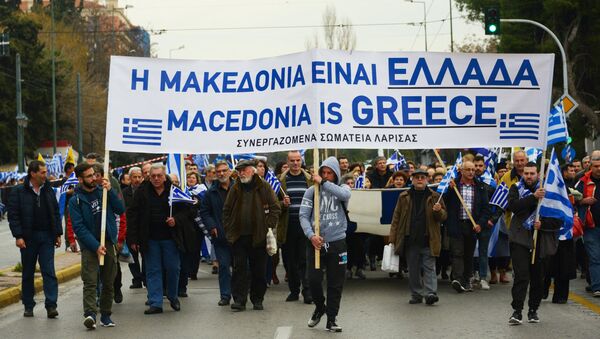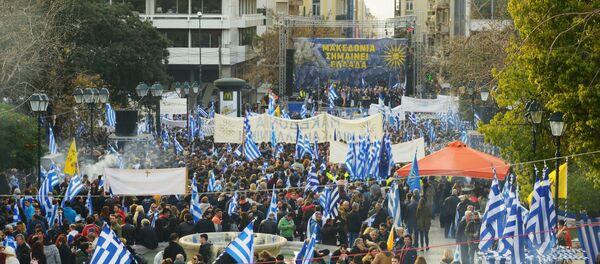Sputnik: What did you make of the protests in Greece over the naming of Macedonia?
Stavros Mavroudeas: The Macedonian issue is a doubled sided conflict, Macedonia is a geographical area with a long population change. In the era of the Ottoman Empire in the early 20th century, it was populated by Greeks, Slavs, Bulgarians, Albanians and more. Now since the disintegration of Yugoslavia, there are the big players in this issue that is the US and the European Union. The US after the disintegration of Yugoslavia has a policy of fragmenting the Balkans into small states that can be manipulated by the US, and also will be drawn out of the perceived Russian threat and Russian influence. For example the US creates the Kosovo state and one of the biggest bases of the US is exactly on the border of Kosovo and the Former Yugoslav Republic of Macedonia (FYROM).
Sputnik: How much is this dispute holding up Macedonia joining world organisations like NATO and the European Union?
Sputnik: As they agree to step up talks, do you think an agreement can be reached?
Stavros Mavroudeas: There are different scenarios for this; a breakthrough dictated by the US would only create more tensions that is the US push forward very strongly for an agreement, whatever the agreement is. In this scenario, the US scenario, people would be aggrieved both in FYROM and in Greece. FYROM would be brought into NATO and conflicts and destabilisation would continue in the Balkans. The other scenario would be an agreement outside NATO, between the two countries according to the interests of both sides. While the US normally argues that they want to stabilise the area, in reality they destabilise it. I’m very pessimistic, I think the US will push very aggressively, and this will create more tensions and more destabilisation and pain in the Balkans.
The views expressed in this article are solely those of the speaker and do not necessarily reflect the official position of Sputnik.


